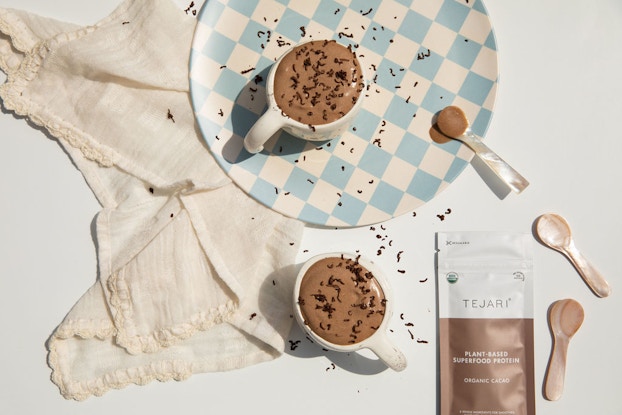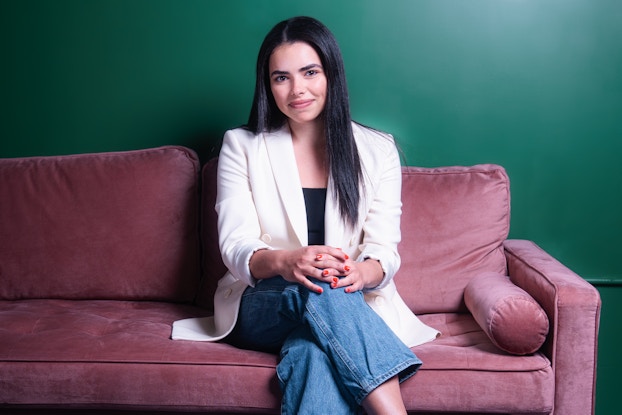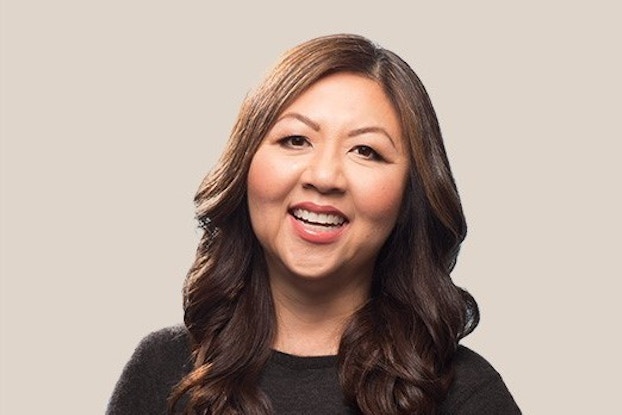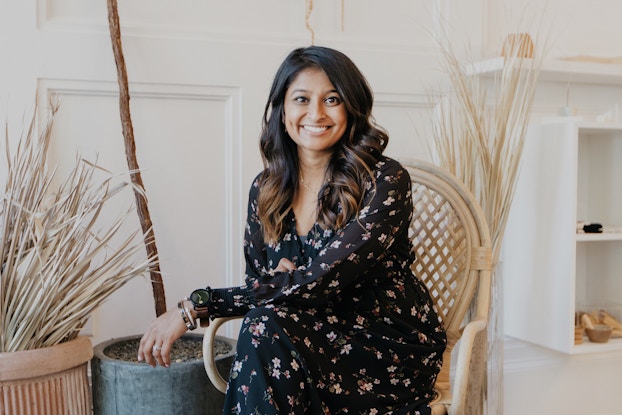
Why it matters:
- Representing just about half of the U.S. population, women also make up an outsize proportion of consumer spending in many categories. According to Nielsen, women’s purchasing power in the U.S. ranges from $5 trillion to $15 trillion per year.
- What’s more, women consumers increasingly identify as conscious consumers, interested in supporting sustainable and minority-owned brands when possible. Despite this, women — and women of color in particular — have long been underrepresented among founders of new brands.
- To capture the interest in conscious consumption and tap into the multitrillion-dollar women’s market in the U.S., brands founded by women entrepreneurs of color across categories from beauty and personal care to grocery are working to deliver products and experiences tailored to the demands of today’s consumer.
Today, more startups are out to shake up the U.S. women’s market with offers designed to cater to the unique needs of their consumer. Period care brand Viv, personalized skin care brand Pure Culture Beauty, and plant-based nutrition company Tejari are all women-of-color-founded, mission-driven startups out to make a difference.
Here in their own words, WOC founders share insights on how they’ve built their businesses and engineered brand growth by both tapping into the purchasing power of women, which ranges from $5 trillion to $15 trillion per year in the U.S., according to Nielsen, and their inclinations towards conscious consumption.

Viv: If you can’t be your own target consumer, find any way you can to listen to them
Katie Diasti, Founder and CEO
The period care industry is around a $52 billion global market and is growing rapidly. Amongst that marketing, the reusable period care product space – menstrual cups in particular – was a $632 million market in 2018 and is projected to grow to a $963 million industry in a few years, according to Allied Market Research.

Interested in a small business membership?
Find out how the U.S. Chamber of Commerce can help your company grow and thrive in today's rapidly-evolving business environment. Connect with our team to learn how a small business membership can benefit your bottom line and help you achieve your goals.
I was so appalled by the plastic waste and toxins in traditional period care [products] and couldn't find a brand that resonated with me as a consumer who is eco- and socially conscious. I started building Viv at 21 and felt like no brand could relate to me, so I thought: ‘Who better than a Gen Z, socially conscious shopper to build a brand for a really powerful consumer audience that has been neglected for so long?’ Being my own target audience has been a game changer in terms of our creativity and problem solving.
[The idea is to offer] a product that works well with brand values that truly matter to the customer. The Gen Z or young millennial shopper cares more about who is building the brand and what the values of the company are. When building the Viv brand, we understood that if our consumer was younger, we would need to make periods and our products as approachable and high performing as possible, while also being sustainable.
I started building Viv at 21 and felt like no brand could relate to me, so I thought: ‘Who better than a Gen Z, socially conscious shopper to build a brand for a really powerful consumer audience that has been neglected for so long?’ Being my own target audience has been a game changer in terms of our creativity and problem solving.
Katie Diasti, Founder and CEO, Viv
When I first started building Viv, I was on a college campus and hosted focus groups in my dorm room where my friends would sit in a circle, and we'd discuss what they like and hate in detail about their current period products. Since then, I have continued to value getting direct feedback from our customers and trying competitor products. By listening to initial customers at markets, we were inspired to launch the Viv menstrual cup. Now, getting feedback means reading every Instagram DM [direct message], TikTok comment, and partaking in in-person events to learn firsthand what our community needs.
Nobody is going to build something just like you, so if your industry starts to explode with competition like ours has, think of it as a positive. I am so excited by all the opportunities and innovations happening in the menstrual care space — it is well overdue.
[Read: How 3 Startups Achieved Growth by Enabling Memorable Customer Experiences]

Pure Culture Beauty: In today’s saturated beauty market, personalization is the ultimate value proposition
Joy Chen, Co-Founder and CEO
I have been in the beauty industry for a long time. I have been an executive for public companies, as well as a CEO or founder of startups, and the challenges are the same. The key is to not think about them as challenges, but see them as opportunities.
The growth rate for personalized skincare is more than double of traditional skincare, and North America represents the highest share of personalized skincare among global sales. The global skincare market will be $210 billion by 2030, with a healthy compound annual growth rate (CAGR) of 5%. The global market for personalized skincare is projected to reach $40 billion by 2030, with a CAGR of 11.2%. This confirms there is an increasing demand for personalized skincare and the market is sizable.
Today, only the wealthy can afford to go to see a dermatologist or esthetician or can afford prestige-priced products and services. Pure Culture’s mission of making personalized skincare available and affordable is our way of making healthy skin available to all.
Additionally, it costs people a lot of money to invest in trying brands through referrals from friends, family, and influencers to find what is actually right for them. That is why our personalization skincare starts with a simple skin test so we can help take the guesswork out [of the process]. The one-size-fits-all model is outdated and does not work for beauty. Inclusion in Pure Culture Beauty is a basic tenet of our mission for personalized skincare. Pure Culture customizes for all skin colors, skin conditions, and genders.
Over 120 billion beauty packages are thrown away each year, with close to 80% going to a landfill. We need to reduce that and the way to do that is to help the customer get to the right skincare without the guesswork of trying many half-used bottles to get there. Additionally, instead of producing 50 SKUs to sit on the retailers’ shelves or warehouses to be sold, personalizing skincare will help us produce [only] what the customer needs.
[Read: 3 Scaling Startups Each Share Their Playbook for B2B Growth]

Tejari: Changing the plant-based industry by bringing ‘as many other talented, supportive, intelligent women with me as I can’
Roma Patel, Founder
Everything I do with my [plant-based nutrition] brand revolves around my initial purpose. From the very beginning, Tejari’s sole intention has been to solve the problem found in mass market protein powders—low-quality protein sources that are nowhere near organic, made with artificial flavors, added sugars, and little to no fiber.
The global plant-based protein market alone is $162 billion and is estimated to become 7.7% of the global protein market by 2030. The total plant-based food market is estimated to reach $78.95 billion by the year 2028. Now, more than ever, the food industry is prioritizing convenience over clean, whole food options for today’s consumer. Our next generation deserves better—to learn healthier habits and never settle for less.
Over the years, we’ve built a community centered around connection and health, both virtually and in real life—from in-person cooking classes to Instagram Live chats with dietitians, meal deliveries for a week’s worth of smoothies, and so much more. We truly love interacting with anyone interested in Tejari. Since launching within Whole Foods, we have hosted over 40 demos in roughly three weeks. This has allowed us to meet customers face to face, gain feedback, and share exactly why our protein powder is the best on the market.
As a woman of color, I’ve come to realize the importance of caring for all walks of life. My mission is to use the resources I have—my voice, my business, and my community—to do better in the world. From day one, I knew I wanted to give back to those who don’t have the luxuries we take for granted every day. That’s why each month, Tejari partners with schools that are dedicated to giving children from socially and economically marginalized families a quality education.
One of our recent givebacks was partnering with schools in Ahmedabad, Gujarat, India, where my parents were raised and where I visited every summer. Our goal is to deliver 1,000 school kits by 2023, and to expand our program to developing countries outside of India. It's a good reminder that every action rooted in purpose—no matter how big or small—is a step towards better.
I’m determined to use my position to change the face of the [plant-based] industry, making sure I’m always asking myself, ‘How are you bringing people with you?’ My focus is to bring as many other talented, supportive, intelligent women with me as I can.
CO— aims to bring you inspiration from leading respected experts. However, before making any business decision, you should consult a professional who can advise you based on your individual situation.
CO—is committed to helping you start, run and grow your small business. Learn more about the benefits of small business membership in the U.S. Chamber of Commerce, here.







